The role of universities at COP26
A perspective from Leeds University on the role of universities in the run up to COP26 and beyond
By Kathy Grenville
Share
Last updated:
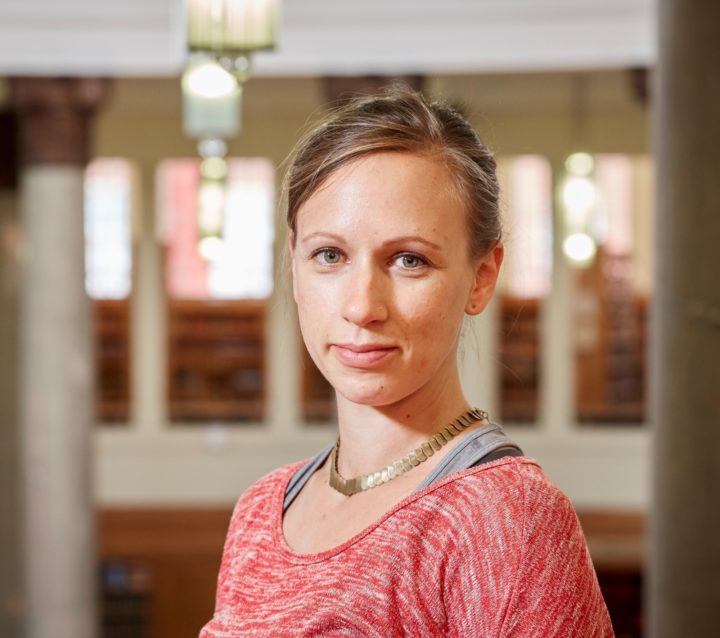
In November 2020, the UK was due to host the United Nations climate change conference, known as COP26, which is now postponed to 2021 due to COVID-19.
As well as being the largest summit ever hosted in the UK, it has been described as the most important gathering on climate change since the Paris agreement was signed in 2015.
Universities across the world, as institutions of research, innovation and education, are working across a broad range of climate topics and disciplines.
They are helping the Global North and the Global South to navigate the complexities of the challenge, the development and delivery of climate action, and offering critical perspectives on proposed solutions.
As such, universities have an essential role to play in the run up to, during, and beyond these critical negotiations.
Here at the University of Leeds, we have initiated a taskforce to develop and steer our contribution to COP26. We are also part of a growing network of universities working together to act as a comprehensive source of research and academic expertise for government, NGOs and other actors involved in negotiations.
At Leeds, our plans for COP26 involve multiple strands of activity, several of which we will outline here.
Supporting the UK COP presidency
The interface between research and policy is important. Universities are well positioned to offer advice to the UK government during its presidency of COP, on a range of topics including climate science, climate solutions, scientific diplomacy and global climate leadership.
At Leeds, we are engaging with several Government departments, including the Cabinet Office, the Department of Business, Energy and Industrial Strategy (BEIS), the Department of Environment, Food and Rural Affairs (DEFRA), and the Foreign and Commonwealth Office (FCO).
We are also working to support the COP26 delivery team to inform broad communication and engagement activity.
Providing vital research input
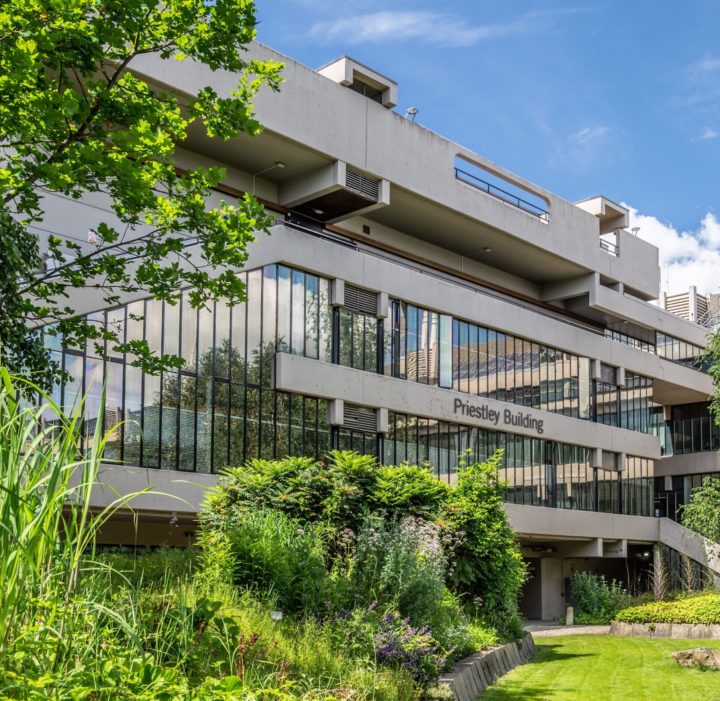
Universities are hubs of cutting-edge climate research that addresses the many facets of the climate challenge: from community activism to financial mechanisms, sectoral analysis (agriculture, transport, energy, water, etc.) to the ethics and politics of the climate crisis.
At the University of Leeds, the Priestley International Centre for Climate hosts ‘climate’ researchers from across a wide range of disciplines, providing a platform for university-wide collaboration, innovation, impact and engagement.
This research is a vital resource for evidence-based policy, and negotiators at COP are offered access to it through the Research and Independent NGOs (RINGOs) constituency to the UN Framework Convention on Climate Change (UNFCCC).
Whilst RINGOs do not advocate for particular negotiating positions, they are able to analyse policy implications and propose alternatives.
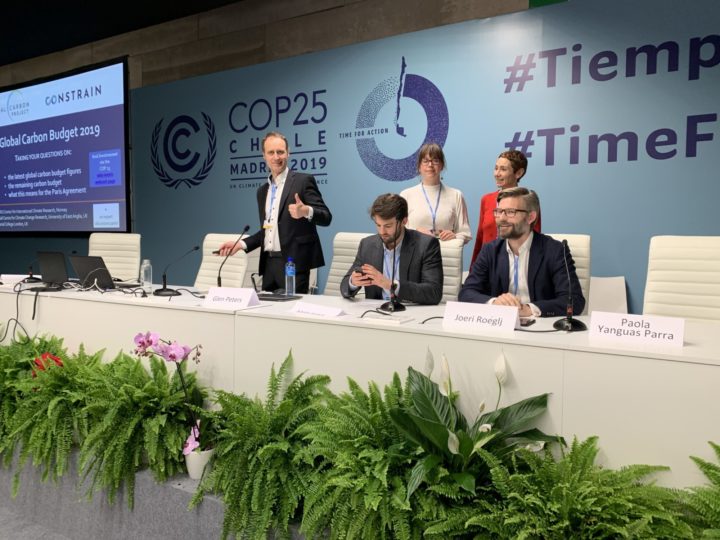
In Leeds, we are running a series of events to encourage and support our researchers to engage with COP26 and the UNFCCC process - you can watch a recording of our first webinar ‘Negotiating our climate: What is COP and why does it matter’ here.
Academic institutions can also run side events at COP. At COP25 in Madrid, the University of Leeds was involved in delivering panel discussions about the Horizon 2020 CONSTRAIN project. You can read a blog about this event and other reflections on attending COP25.
Accelerating and mainstreaming climate education
Education will be given substantial attention in the climate change negotiations this year as the “Doha Work Programme” of the UNFCCC will be reviewed.
Children and young people’s awareness of and interest in climate change has been demonstrated by the vast number of participants in the Fridays for Future school strike movement.
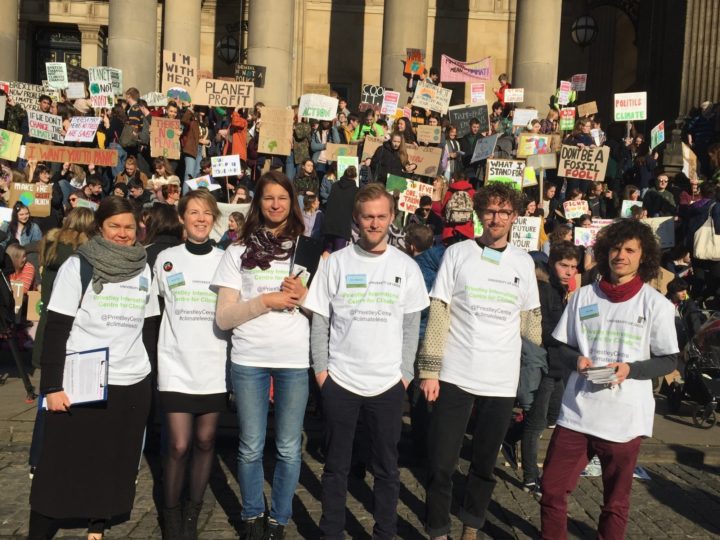
Leeds researchers regularly attend these strikes as academics, hearing directly from young people and their families about their very real concerns for the future.
One of their key asks is for climate change to be more fully incorporated into the curriculum, as many feel the current provision is inadequate.
It is vital that the higher education sector responds to this call to action. At Leeds, we have ongoing initiatives to embed sustainability into the curriculum and to deliver world-class climate related teaching and learning across the whole campus.
We are also partnering with other universities to develop bespoke and relevant educational offerings for students, and contributing to discussions about the future education and skills requirements to tackle the climate challenge.
Engaging with the public
COP26 is receiving global media attention, and whilst attendance at the conference itself is limited to only a small group, universities may act as conduits between conference and communities.
Several events are being explored in Leeds (although most plans are preliminary due to COVID-19):
- A City Climate Commissions webinar hosted by the Economic and Social Research Council-funded Place-Based Climate Action Network(PCAN) and involving existing climate commissions and places wishing to start their own. The webinar will share best practice, opportunities, challenges and barriers to progress.
- A pre-COP26 ‘Climate Question Time’ event for young people
- Presentation of the updated Leeds Carbon Roadmap and progress to date on a science-based (IPCC 1.5 Degrees Report) pathway to net-zero for the city of Leeds.
Net-zero universities
The University of Leeds, like many other academic institutions, has made ambitious net-zero commitments, and we are working to secure a net-zero carbon footprint by 2030. As we do so, our campus will function as a living laboratory, as it has done since 2017, with a growing number of projects that deliver climate action on the ground, informed by our own research insights.
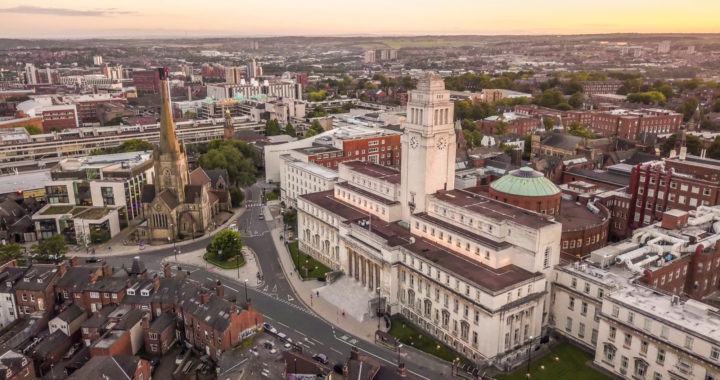
Some of our current projects include monitoring and mapping air quality, exploring the value of campus trees, and trialling scalable food waste solutions.
In the run up to COP26 it is more important than ever to demonstrate climate solutions in real-world settings to help us imagine and rapidly achieve a net-zero future.
What’s more, we want to harness the energy and ambition of COP26 to continue to drive the momentum of our Climate Plan at the University of Leeds and explore opportunities to scale up our own action through collaborations locally, nationally and internationally.
Building an alliance
The University of Leeds is part of a growing group of universities working together to improve access to evidence and academic expertise for COP26 for government, NGOs and other actors.
The network’s intended legacy is a better coordinated UK climate research community that is strongly positioned to support the delivery of the UK’s net-zero emissions target across technical, socioeconomic and governance dimensions.
We continue to explore how we as a university can contribute to a successful and impactful COP26, in whatever form or timescale it appears. Now, more than ever, we must focus on what is truly important for a thriving, sustainable world.
Bringing these various strands of engagement together, our COP26 taskforce is building a set of platforms from which the University of Leeds can both input into the COP26 process and develop - with other university initiatives - a legacy of sustainability practices for the immediate decades ahead.
Share